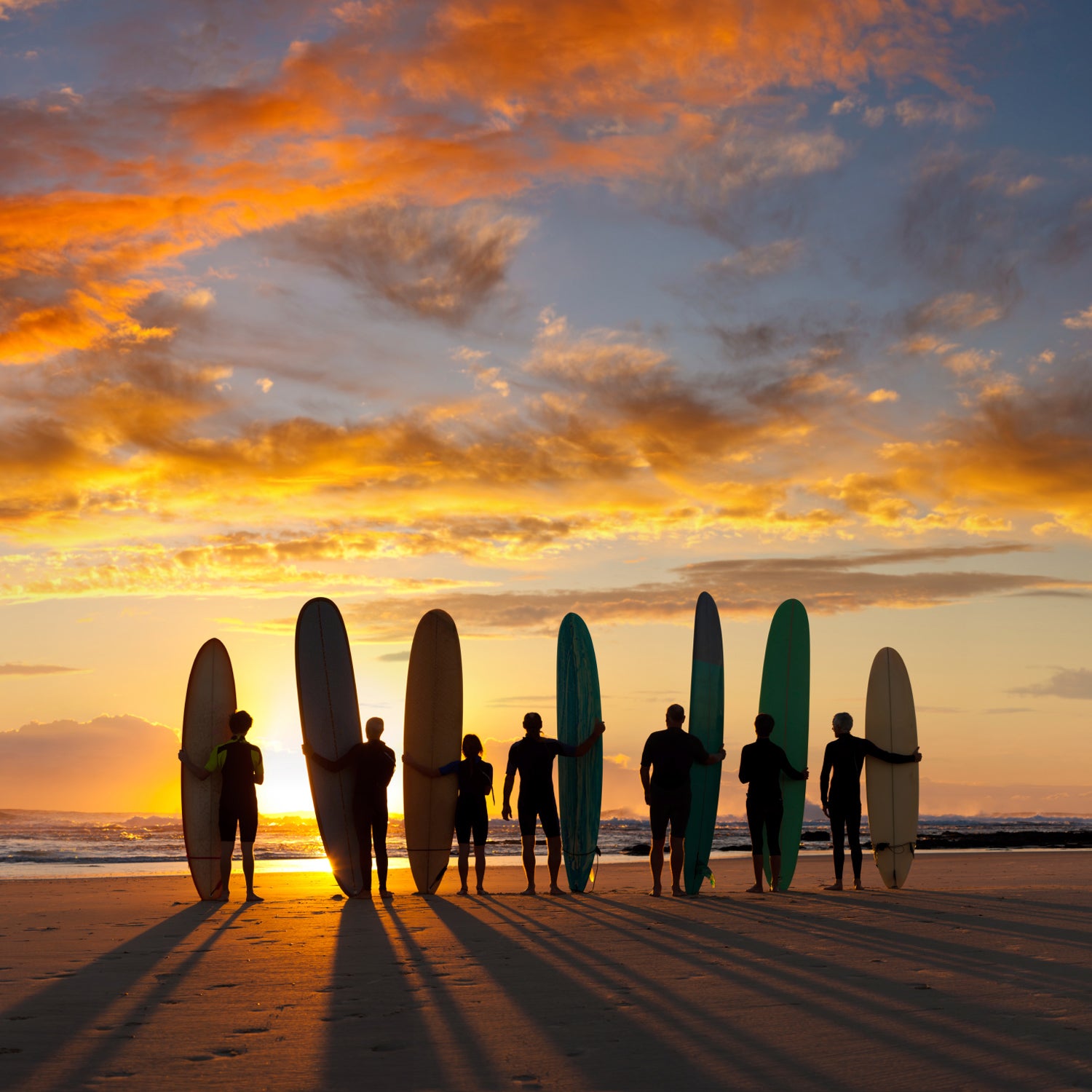Matt Warshaw grew up in Manhattan Beach in the ‘60s, just as surfing was cementing its central place in Southern California’s culture, and spent his youth in the water. He and his high school buddies would surf anywhere they could, from the beach breaks of Huntington to the peeling point at Malibu. But there was one spot they never even considered visiting.
“We never surfed Lunada Bay,” Warshaw says today.
Lunada Bay, a surf spot on the northern coast of the bucolic, affluent Palos Verdes peninsula in Los Angeles County, is in the news again this month. The spot is famously home to one of the most aggressive band of local surfers in the world: the Bay Boys. In March, a group of plaintiffs, including a local police officer, against eight alleged members of the Bay Boys (with the intention of adding more defendants later), accusing them of harassing visitors who tried to surf the bay, home to a high quality reef break accessible only by a narrow pass down the bluffs. According to the court filing, the Bay Boys have thrown rocks at surfers trying to scramble down the cliffside trail to the beach, slashed tires, and physically fought outsiders for surfing “their wave.”
“Throughout the Lunada Bay area, [Bay Boys] members not only confront and attack other beachgoing class members, but also confront, threaten to kill, assault, vandalize property, extort, and bring harm to other persons who live in, work in, or pass through the Lunada Bay area,” plaintiff in the filing. The complaint asks a federal judge to label the locals a “gang,” which, under the current legal framework, would prevent members of the Bay Boys from congregating at the beach. “The last time I surfed out there, these guys tried to really hurt me,” a 42-year-old Redondo Beach local this week. “A guy tried to ram a board into my ribs.”
“I kind of respect the Lunada Bay Boys in a weird way,” Buckley writes. “Are they entitled pricks? I’m sure! But do they achieve their goal? Very much so.”
Subversive behavior has long been a part of West Coast surfing culture, but have mostly cheered the possible government intervention on the Bay Boys. “Gangs” of surfers fight for their turf around the world, from Hawaii to Spain to Australia. But the Bay Boys may well be the most contemptible of the bunch: in addition to the blatant violence, their zip code is one of the richest in the country—the median household income in Palos Verdes is $163,000—and their agro behavior violates Californians’ access to the coast.
“It is clear that the days of the Bay Boys and their rampant, heavy-handed brand of localism are coming to an end, and with the number of other [accusers] coming out of the woodwork, it looks as though karma might be a bitch,” the surfing website .
But surfing’s relationship with “localism” is complicated. Ask any longtime surfer what his biggest gripe is and chances are you'll get one answer: overcrowding. The number of surfers in world jumped from 26 million in 2001 to . Tensions arise not only because of the volume of people in the water, but the fact that newbies don’t observe the activity’s , which can be summed up in three essential mandates: wait your turn; don’t get in the way of fellow surfers; respect the locals. It’s enough to turn a sunny day at the beach into a heaving mess.
To see what happens when the hordes descend on a break, all a surfer has to do is drive 20 miles up Pacific Coast Highway from Palos Verde. In Malibu, the famously excellent point break in northern LA County, the system has broken down. Hundreds of surfers vie for space at the world-class spot, cutting each other off and . A small to limit crowding, but it’s too late for Southern California’s most famous break—everybody wants a piece of Malibu. “It’s the tragedy of the commons,” says Warshaw.
In its milder form, localism enforces the surfer’s code, says Jess Ponting, the director of San Diego State University’s Center for Surf Research. Though he is quick to condemn such localism—Ponting calls the Bay Boy’s actions “some insidious shit”—he empathizes with surfers crowded out of their home breaks. Mild, non-violent localism is often touted as a “a response to limit crowding,’’ he says, though he doesn’t condone the practice. “In a local area that’s overwhelmed by visitors, perhaps local surfers deserve to have at least a spot that’s less crowded,” he says. “If localism is the mechanism to achieve that, the argument goes, then maybe that’s okay?”
Surfers bump elbows nearly anywhere there are accessible waves. But at Lunada Bay, the lineup is noticeably sparse. When a Guardian reporter tried to surf the bay for a , a local told him, “The reason there’s a lot of space is because we keep it like that. We fucking hassle people.”
And that’s the thing about the Bay Boys and their thuggish behavior: they've kept their break free of crowds. “Localism works,” Warshaw says.
It’s unclear just how the case against the Lunada Bay Boys will shake out. As details emerge, we’ll be confronted with the dilemma of how to manage beach access and cultivate an enjoyable surfing experience at a time when more people than ever are vying for their turn on the wave. No one in the professional world of surfing condones the vile, repellant actions of the Bay Boys. And rightly so. But, as any surfer who's spent a morning dodging logs at his local break can attest, it's easy to understand the drivers for localism.
Brendan Buckley, writing for Surfing Magazine , may have put it best: “I kind of respect the Lunada Bay Boys in a weird way,” he writes. “Are their methods brash and childish? Absolutely. Are they entitled pricks? I’m sure! But do they achieve their goal? Very much so.”


